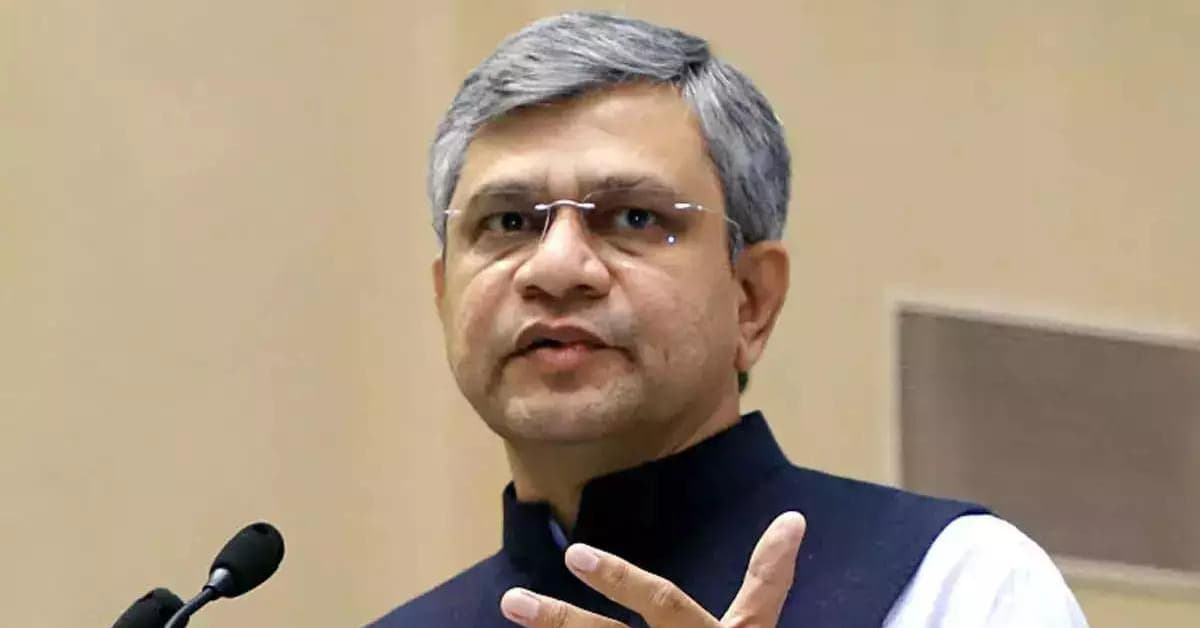The second phase will aim to bring component companies, raw material suppliers, and others in the semiconductor ecosystem to India
Union minister Ashwini Vaishnaw also said that 113 universities, academic institutions and R&D organisations have integrated semiconductor-focused courses
So far, five semiconductor units have already been approved by the central government under ISM, which are expected to bring in investments worth INR 1.52 Lakh Cr
Union electronics and information technology minister Ashwini Vaishnaw on Wednesday (September 11) said that the government will kick off the second phase of the India Semiconductor Mission (ISM) in the next three to four months.
The second phase will widen the scheme’s scope and will aim to bring component companies, raw material suppliers, and others in the semiconductor ecosystem to India, besides just semiconductor fabrication and chip packaging units.
This comes a day after ISM chief executive officer (CEO) Akash Tripathi made the same announcement on Tuesday.
Vaishnaw also said that the focus of the second phase will be on developing an ecosystem which will encompass specialised materials, gases and chemicals.
Speaking about various semiconductor units that have been approved by the government, the minister said, “Construction is underway at Micron’s unit, and work has begun on the Morigaon Tata unit, with more projects set to start soon. Securing permissions at a record pace has set a new global benchmark”.
The central government has approved five semiconductor units so far under the India Semiconductor Mission. These units are expected to bring in investments worth INR 1.52 Lakh Cr.
Last week, the union cabinet approved the proposal of Kaynes Semicon to set up a semiconductor unit in Gujarat with an investment of INR 3,300 Cr. Adani Group’s INR 83,947 Cr semiconductor unit with Israel’s Tower Semiconductor was also recently approved by the Maharashtra government.
Meanwhile, the minister also said that 113 universities, academic institutions and R&D organisations have integrated semiconductor-focused courses. He said that LAM Research’s programs like Semiverse are currently running in 74 universities, which have trained more than 2,600 students this calendar year.
The comments came as the three-day long SEMICON India event kicked off in Greater Noida on Wednesday. At the event, Prime Minister Narendra Modi said that the Centre has set up a special reserve fund with an outlay of INR 1 Lakh Cr to drive innovation in the semiconductor and science & technology sectors.
Home to more than 100 semiconductor startups, India’s semiconductor ecosystem is poised to become a $150 Bn opportunity by 2030, according to Inc42 data.
Disclaimer
We strive to uphold the highest ethical standards in all of our reporting and coverage. We StartupNews.fyi want to be transparent with our readers about any potential conflicts of interest that may arise in our work. It’s possible that some of the investors we feature may have connections to other businesses, including competitors or companies we write about. However, we want to assure our readers that this will not have any impact on the integrity or impartiality of our reporting. We are committed to delivering accurate, unbiased news and information to our audience, and we will continue to uphold our ethics and principles in all of our work. Thank you for your trust and support.



![[CITYPNG.COM]White Google Play PlayStore Logo – 1500×1500](https://startupnews.fyi/wp-content/uploads/2025/08/CITYPNG.COMWhite-Google-Play-PlayStore-Logo-1500x1500-1-630x630.png)